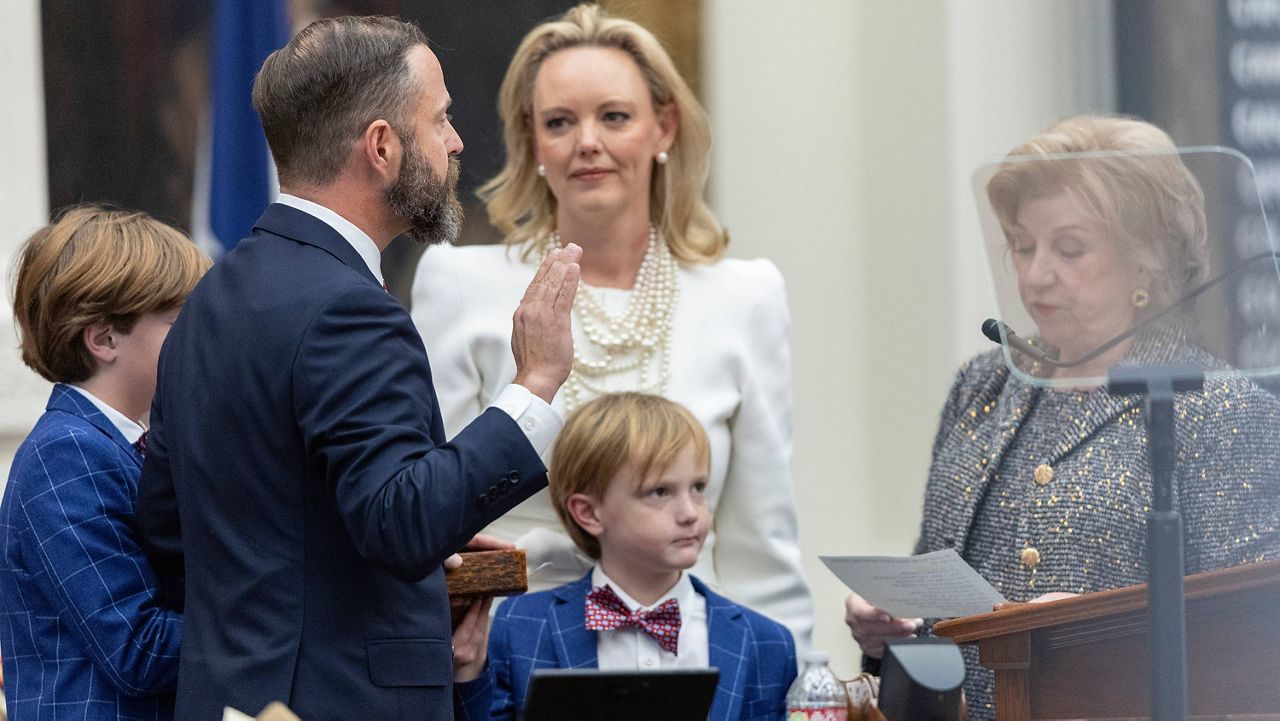HELENA, Mont. (AP) — A Montana judge on Friday said a climate change lawsuit from young people challenging the state’s pro-fossil fuel policies will proceed to trial despite efforts by the state to derail the case.
The upcoming trial in Helena would be the first of its kind in the United States, according to experts in climate law who said the nation is lagging behind the rest of the world in terms of climate litigation.
However, because of prior rulings that limited the scope of the Montana case, a victory for the plaintiffs would not automatically alter the state’s regulation of fossil fuels.
Attorneys for the 16 young plaintiffs, ranging in age from 5 to 22, alleged state officials were trying to avoid the upcoming trial when Republican lawmakers in March repealed the state’s energy policy — one of two laws that the case challenges. The plaintiffs and their backers are hoping to use the two-week trial that’s set to start on June 12 to highlight the dangers of fossil fuel emissions that scientists say are making climate change worse.
People are also reading…
Montana Attorney General Austin Knudsen, a Republican, had asked state Judge Kathy Seeley to dismiss any part of the case touching on the cancelled energy policy. Attorneys for the state also wanted more time to offer legal arguments over recent amendments to a law that allows officials to ignore greenhouse gas emissions when approving fossil-fuel projects.
The judge was not swayed.
“I would suggest you continue to prepare for trial,” Seeley told attorneys at the end of a Friday court hearing. “I’m not intending to just stop everything so that we can spend months wrapped around that spoke.”
The case was brought in 2020 by attorneys for the environmental group Our Children’s Trust, which since 2010 has filed climate lawsuits in every state on behalf of youth plaintiffs. Many cases — including a previous one in Montana — have been dismissed.
The latest Montana lawsuit originally sought in part to repeal a state policy promoting coal, gas and oil development. Scientists say burning those fuels is largely driving climate change by releasing planet-warming carbon dioxide.
An attorney for the plaintiffs, Philip Gregory, told The Associated Press the policy was repealed by the Legislature “not because the state has committed to changing its fossil fuel policy and actions, but because the state seeks to avoid standing trial.”
He said the state’s continued support for fossil fuels violates environmental protections in the Montana Constitution, which says the state “shall maintain and improve a clean and healthful environment in Montana for present and all future generations.”
The lawsuit documents how the consequences of climate change already are being felt by the young plaintiffs, with smoke from worsening wildfires choking the air they breathe and drought drying rivers that sustain agriculture, fish, wildlife and recreation.
The state argued that the plaintiffs were resorting to “emotional appeals” about the dangers of climate change, regardless of whether their legal claims have merit. They should have challenged specific laws that allow state agencies to issue permits for fossil fuel projects, said Assistant Attorney General Michael Russell.
When plaintiff’s attorney Roger Sullivan said that Montana had never denied a fossil fuel development permit, Russell said projects that meet state requirements cannot be denied.
Judge Seeley already narrowed the scope of the case, ruling in 2021 that it was outside her power to issue a requested order that would have forced the state to craft a greenhouse gas reduction plan. The judge also said she could not order the state to complete an inventory of emissions caused by fossil fuels.
In both instances, Seeley said such work should be left to experts in the executive and legislative branches of government.
But Seeley said the court could declare that the state was in violation of the Constitution, without ordering that anything be done in response.
Sandra Nichols Thiam, an attorney with the Environmental Law Institute, said that could further the case of the failure of governments to address climate change.
“It’s highly significant that this case is going to trial at all,” Thiam said. “Getting all of this information on the record will be a major advancement in climate litigation.”
The sponsor of the measure that repealed the energy policy, Republican Rep. Steve Gunderson, did not return a call seeking comment. He said when it was under consideration before the Legislature that the policy was meaningless and outdated.
Costley reported from Washington.
Copyright 2023 The Associated Press. All rights reserved. This material may not be published, broadcast, rewritten or redistributed without permission.











/cdn.vox-cdn.com/uploads/chorus_asset/file/25829977/STK051_TIKTOKBAN_B_CVirginia_C.jpg)












/cdn.vox-cdn.com/uploads/chorus_asset/file/25822586/STK169_ZUCKERBERG_MAGA_STKS491_CVIRGINIA_A.jpg)

/cdn.vox-cdn.com/uploads/chorus_asset/file/25821992/videoframe_720397.png)



/cdn.vox-cdn.com/uploads/chorus_asset/file/23935558/acastro_STK103__01.jpg)
